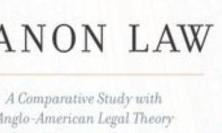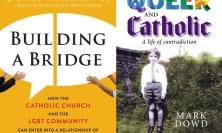Three things happen when senior politicians publish their memoirs: first, while denying it, those who have worked with them and for them scour the index in search of a foothold in history. Second, journalists gather to look for scandal that might have traction in the immediate present. Third, the book settles on to the bookshelves to be placed in a wider context as other memoirs emerge, followed by official papers in the years after that. Unsurprisingly, all three features of political life have exploded upon us in the aftermath of the publication of Tony Blair’s A Journey.
Geoff Mulgan, Blair’s long-serving and innovative Head of Policy does not merit a mention. This is regrettable as, unlike most previous Prime Ministers, Blair relied heavily on a cadre of personal advisors, most often from outside the committed ranks of his party, to protect, promote and implement his vision. For this reason the praise heaped upon (Lord) Andrew Adonis is notable and the careful delineation of fault lines between those advising Gordon Brown and himself remarkable. The camps were drawn tightly apart, despite protestations of public unity, with Brown breaking the confidences of his own team to create a culture of secrecy, insecurity and paranoia. There were moments when Blair had had enough; at times he turned to drink (not very much by modern British standards) and at others he felt like resigning. In these times only Peter Hain and John Denham seemed to be able to talk to the ‘left’ and the ‘right’ of the party and so draw others into the mainstream. They were well worth keeping on board. John Prescott played his part but in one sense could not help assuming as he did, according to Blair, that in the end the Prime Minister and his Chancellor were made of the same policy priorities and driving principles.
The Tony Blair that emerges in this book is a spiritual enigma: a Labour politician who did not take a stance against abortion but, despite protestations to the contrary and despite the absence of religious reflection in this book, still ‘did God’ ; an arch-moderniser who sought to crack open the post-war welfare consensus but who embraced an old-fashioned and intense centralism to drive through his public policy reforms; the public school boy who ended up leader of the sometime workers’ party; a short-term advocate of unilateralism; and the father and spouse who turned to Rome. Neither the Pope, nor Catholicism, nor religion in general make it into the core narrative of this work despite their seeming importance to Blair’s thought – and so what is omitted here tells us as much about Blair as that which he includes.
Indeed, if in this racy autobiography you go in search of a convincingly reflexive Blair, you will be disappointed. The book is pitched to the Anglo-US market and it seeks approval from corporate CEOs on the one hand and from women of a certain age in Oprah Winfrey’s Book Club on the other. It is Jack Welch meets Victoria Beckham: what it felt like at the top; how I dealt with Gordon; why I turned to the booze to get me by; why I went to war; a whole chapter on Lady Diana’s passing. What the book gains in readability it loses in depth – or a glimpse of real hinterland. For this reason it is best read alongside Andrew Rawnsley’s two books on the Blair years and John Rentoul’s two editions of a life of Anthony Charles Lynton Blair.
And yet for all this, A Journey is a very good book. The genius of Blair’s perspective is perhaps best captured at the moment where four Labour frontbenchers leave the Labour Party in 1981 to found a new, moderate, centre-left party no longer in thrall to the politically-obsessed Left. While many in Labour would have watched the coverage of the SDP’s launch spitting with fury, and with cries of treachery in the air, Blair notices a striking image on his TV screen: these four politicians have a bottle of wine on their table, they represent a new aspirational spirit in the country, and at that moment it seems vital waters in the movement towards the birth of New Labour are broken.
Unlike Hugh Gaitskell some 40 years before him, as Labour leader Blair successfully abolished the party’s constitutional commitment to nationalise the commanding heights of the economy. He marginalised the Left and returned Labour to a period of power unprecedented in its history, sidelining those who would once have been apostles of Bevanism – though it is a moot point whether he and Neil Kinnock before him so hollowed out his party that today it is at risk of public sector trade union entryism in the years to come. But for Blair this is the whole point: politics, he recognised, is a minority sport centred on even smaller groups of active people. That he made it to Number 10 despite his party and not because of it was part of his plan. Politicians and the hacks needed to get out more.
And so as in Westminster they look for their namechecks, in Fleet Street they still search for gossip and as this book settles towards the bookshelves of libraries in the future a question hangs in the air: was Blair the first Prime Minister of the post-modern cyber age? Or the last of the TV age? With his strange mix of omissions, inclusions, testimony and populism, when it comes to Tony Blair’s journey, only time will tell.
The reviewer, Francis Davis. is Visiting Fellow in Civic Innovation at the Helen Suzman Foundation, South Africa and recently published The Big Society - A View From The South.






